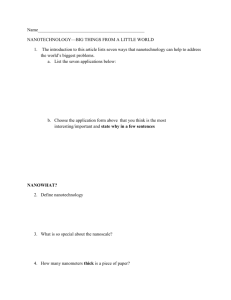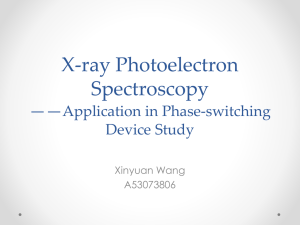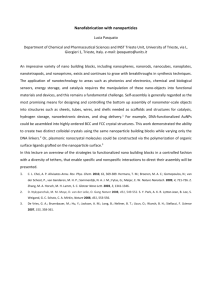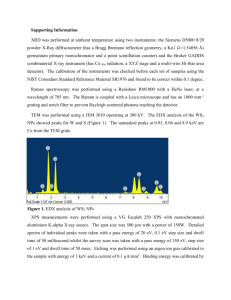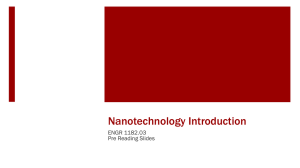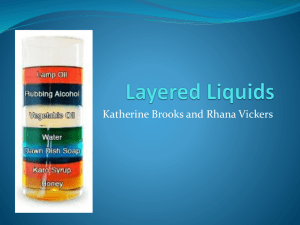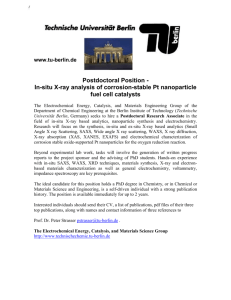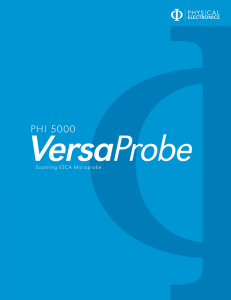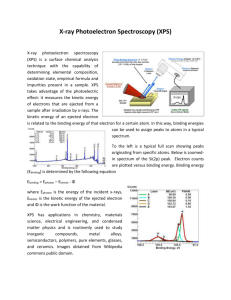Nanoparticle Surface Characterization by X
advertisement
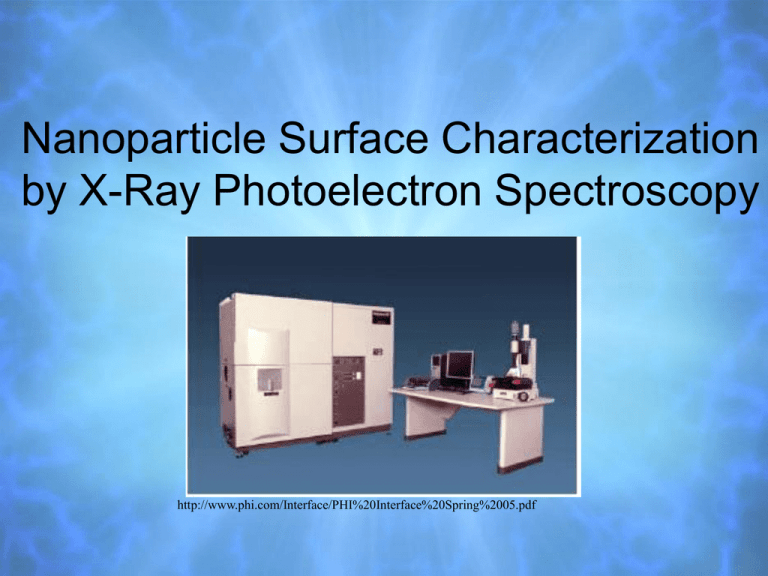
Nanoparticle Surface Characterization by X-Ray Photoelectron Spectroscopy http://www.phi.com/Interface/PHI%20Interface%20Spring%2005.pdf What is Nanotechnology? Nano = 10-9 Nanoscale science: investigates the properties of matter in the critcal range of 1nm – 100 nm. Nanotechnology: Is building and using devices from 1 nm – 100 nm. What Leads to Unsual Properties? Any solid or liquid has 2 components: •surface •bulk The Macroscopic Case One drop of water: 100,000 bulk molecules per 1 surface molecule Another Example... •2 surface layers vs. ~10,000,000 internal layers •2 surface layers vs. ~5,000,000 internal layers •Percentage of surface: 0.000002% vs 0.000004% Shrinking Down to the Nanoscale C60 5% 10% 50% 100% Properties of surface atoms/molecules now affect the overall properties. Properties Change According to Size! Different sizes of gold particles = different optical properties. Nanoparticle Surfaces: What’s the Problem? • Nano is all about surface! • Surfaces are thin. • Most surface coatings are organic. Boyen, H.-G.; Kastle, G.; Weigl, F. et al. Science 2002, 297, 1533-1536. XPS: How Does it Work? ejected electron X-Ray KEelectron = hX-ray – BEelectron http://www.almaden.ibm.com/st/scientific_services/materials_analysis/xps/ XPS Spectrometer: Basic Components Settle, F., ed. Handbook of Instrumental Techniques for Analytical Chemistry. Prentice Hall. 1997. 1200 Counts / s 1000 800 600 400 200 0 300 295 290 285 280 C(1s) Binding Energy (eV) Peak Position Area % C1s Carbon- ID 1 285.50 1457.1 52% Pristine C60 2 287.45 489.75 18% Mono-oxidized C 3 289.73 836.67 30% Di-oxidized C 275
